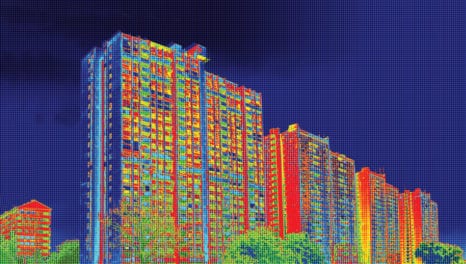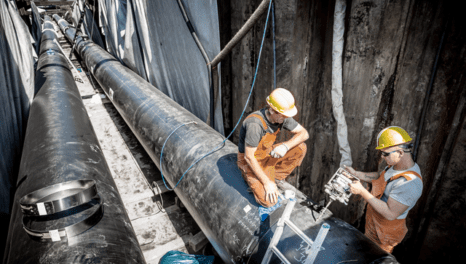Dealing with weather events
Alex Prentice, sector lead for utilities at Huntswood, examines how networks can prepare for a significant rise in customer complaints and queries around extreme weather events.
12th May 2019 by Networks

There is little doubt our weather is becoming more unpredictable and extreme. Last year, we saw widespread snow fall in March when the ‘Beast from the East’ struck, followed by one of the longest heatwaves in living memory over the summer.
Although long-range weather forecasts should be treated with caution, there have already been predictions that this winter could be an especially harsh one with low temperatures and prolonged periods of snow.
Energy firms are used to planning for extremes in weather and have invested significantly in the resilience of their supply networks. But as the climate becomes more unpredictable – with storms and extreme weather seemingly sweeping in at short notice and high speed – it is taking the challenge to new levels.
We may not be able to predict the weather but building resilience across the UK’s power network is crucial. Companies must be prepared for these types of events, both in terms of the ability to physically support the system and to ensure that they have robust processes in place to deliver support to customers at times of need. While a quick and effective reactive response is crucial, the industry should also be embracing ongoing proactive customer communication to build trust and prepare for unexpected challenges.
Extreme weather can affect all customers and put anyone in a position of hardship and duress. However, it can particularly affect vulnerable customers, who are already a significant priority focus for Ofgem. There are a myriad of reasons as to why customers may be vulnerable, and all – including the elderly, young children, those with disabilities or poor health, and those who may already be heavily rationing their energy usage to keep costs down – can all be severely impacted during extreme cold and/or interruptions to power.
Energy firms are increasingly finding that effectively supporting customers requires clear and effective customer-centric communications; for example, staff who are trained to understand the signs of vulnerability and are given the authority to offer flexible solutions where appropriate, as well as a commitment to measuring progress against clearly defined outcomes.
The same principles apply to extreme weather. It’s about proactive communication to give warning and raise awareness that an event may be coming, and fast and responsive communications across channels (phone, online, social media) when an event hits. This transparent approach to communication, backed up by sufficient engineers in the field and agents in the customer servicing and complaints team, lets customers know that a company is genuinely doing everything it can to help them and return services to normal.
Building trust has been a major focus for the energy sector and progress has been made. But if companies are not ‘there’ for customers when they are most needed, that trust can be wiped away in an instant. Maintaining – and indeed increasing – trust through strong and proactive communication can also help to reduce complaint levels. For example, in the water industry, the Consumer Council for Water (CCWater) found that during the freeze-thaw earlier this year companies that used all their communication channels and showed a presence on the ground received lower levels of complaints.
Recent events demonstrate that while some suppliers respond well to challenges and keep customers top of mind via ongoing business planning and effective communication, others have improvements to make. External customer engagement experts can provide an outside perspective for companies seeking to anticipate customer needs more effectively and ensure high quality complaints handling, which reduces costs over the long-term. This may be an opportune time for energy firms to consider external partnerships that improve customer relationships, rebuild trust and reduce complaints, which allows companies to focus on their core activities.
Extreme weather is certainly a challenge for energy networks, but if managed successfully, it can also be a catalyst to improve customer engagement and achieve good outcomes. Dealing with such events should not be a bolt-on left to the last minute, but rather should be an extension of a culture already there. That is why it’s about much more than just having enough front-line staff to cope with demand; it’s about putting in place the right culture across the business and looking at the customer journey at every point.
Comments
Login on register to comment
Related content

Heat
Electric storage heating – a Cinderella solution
Why has electric storage heating been overlooked as we seek to tackle decarbonising domestic heat?

Heat
Prospects bright for landmark East London Heat Network
New Vattenfall-Cory partnership marks step towards record-breaking heat network capable of serving over 10,000 homes

Heat
New construction director at Switch2 Energy
Appointee brings experience from Vattenfall and Eon
Related supplier content
![‘Learning by doing’ on the road to net zero [test product]](https://networksonline.s3.amazonaws.com/products/images/3.jpg)
People & Skills
‘Learning by doing’ on the road to net zero [test product]
DSO director Andrew Roper discusses 'Learning by doing'

Power
Load patterns and lockdown: how Covid-19 is impacting electricity networks
Insights into dynamics on the low voltage network as the outbreak unfolds

Downloads
Protect electrical equipment from insulation failure
Insulation faults are a major cause leading to the eventual failure of electrical equipment. Partial discharge (PD) is a very reliable indicator of developing insulation faults. Regular PD testing allows users to detect and analyze PD activity